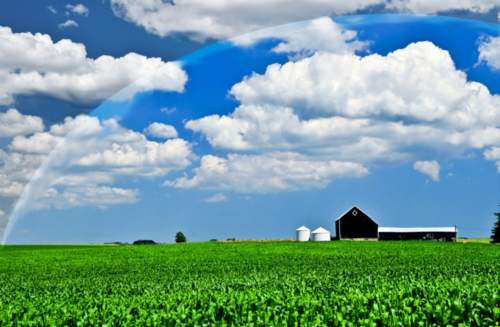WEATHER CONTROL--HOW MUCH DO WE REALLY WANT?
/
Science fiction writers are expected to predict future trends, but I think it’s also our job to show the implications of those developments. Sometimes that might be the main focus of the story (like the dangers of artificial intelligence), but it doesn’t have to be. Any story will be richer and more authentic if it shows different facets of a particular choice by society.
Take the weather, for example. An old saying declares “everybody talks about it but nobody does anything”. Of course, in stories set in the future it’s not unusual to have the weather controlled by advanced science, either planetwide or by enclosing the spaces where we live in giant domes. But I’ve rarely seen an author go into much depth about the advantages or disadvantages of weather control.
At first blush, it would be great for beach resorts who could guarantee uninterrupted suntanning and cruise lines who wouldn’t have to worry about high waves and seasick passengers (just food poisoning and norovirus). If your picnic or outdoor wedding was ruined by rain you’d only have yourself to blame for not checking the weather schedule (“That was your only job!” “No, I had to keep the groomsmen away from the booze too.”) There would be no more killer blizzards or crippling ice storms, no tornadoes or hurricanes. Heck, some expensive urban infrastructure like storm sewers, drainage ditches, and streets wide enough to hold ploughed snow might not even be needed. The expenses caused by seasonal weather (like heating and air conditioning) could be significantly reduced, or at least regularized.
With full weather control, the amount of sun and rain could be optimized for crops, so farming would be much more predictable and economically secure. Expensive irrigation methods might be unnecessary in some places, while in others only deliberate irrigation would be used under non-stop sunshine. Solar power would get a big boost (though wind generation would probably collapse).
It wouldn’t all be good—every major change has a cost. Lots more sunny beach weather would increase the rate of skin cancer, for instance (and kill the umbrella industry).
Because of the expense, weather control will most likely be applied according to crop needs rather than personal preferences and, if so, would be optimized for the most lucrative cash crops, like corn, soy, cotton, and rice. Lovers of fresh berries, tomatoes, and leafy green vegetables might be out of luck. That’s why it will be better to apply it region by region rather than planetwide. And since you can’t please everyone, it may never be practical to control the planet’s weather as a whole anyway.
So say we’ve got regional weather. If you love sunshine but your home territory is designated as a forestry zone, your tan will look a little pale and wet. Since seasons are inconvenient for both urban business and commercial farming, say goodbye to those cool, bug-free autumn days and crisp winter frosts. I have a feeling, too, that extreme swings of temperature would be discouraged, which would mean the end of bright Fall colours on the trees and seriously challenge the production of maple syrup. More seriously, if we channel all of the atmosphere’s moisture where we want it, everywhere else will suffer drought and eventually turn to desert. Long before that happens, our weather compartmentalization will have badly reduced the populations of most birds and animals by forcibly shrinking their ranges into specialized pockets with limited numbers of species. Imagine how it will mess up the instinct to migrate.
Plants like grasses that depend on the wind to spread their seeds will become much less diverse and therefore badly vulnerable to blights. The same thing might happen to nearly all plants as our specialized zones cause less dispersion of DNA and less variety (though our increased monopolization of crop production is doing a good job of that already).
On a purely aesthetic note, homogeneous and predictable weather could mean the end of much beauty: the glory of an approaching storm and the majesty of fierce lightning. Fewer clouds mean boring sunsets. Controlled rainfall could reduce the number of rainbows. And let’s not forget the way weather fuels our creativity. There might be no more songs about looking at clouds from both sides now, answers blowing in the wind, or dancers singin’ in the rain.
Control of our planet’s atmosphere may one day become a reality, but whether it will ultimately be a good or a bad thing is as unpredictable as…well, the weather.

